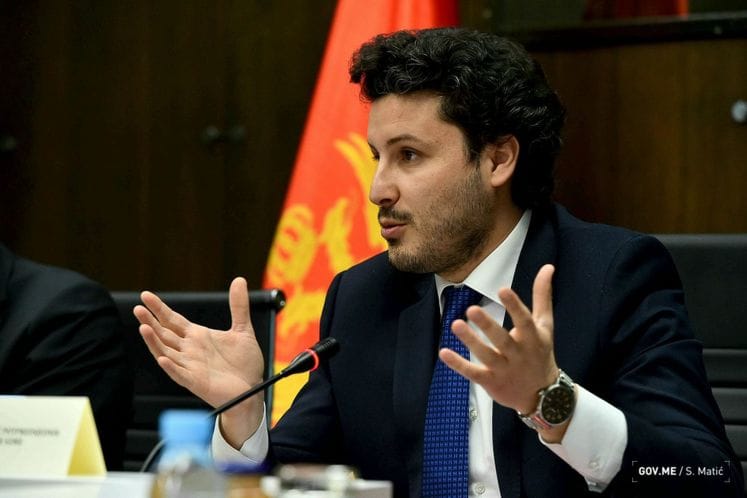- Government of Montenegro
Abazović congratulates World Press Freedom Day: We...
Abazović congratulates World Press Freedom Day: We will insist on salary increases, self-regulation and change of legislative framework

Deputy Prime Minister Dritan Abazović, congratulated 3 May, World Media Freedom Day, stating that Montenegrin media workers today perform their jobs in very difficult conditions, surrounded by problems, especially in the field of freedom of expression and the need to reform the legislative framework. "This is a systemic problem that the European Commission has been warning about for years in its reports, and which most vividly reflects the democratic development of Montenegro. Therefore, the Government will advocate primarily for the absolute implementation, but also for the change of the legislative framework that regulates the media," stated Abazović.
DPM Abazović pointed out that serious work is needed to address the needs of journalists, photojournalists, cameramen, but also all other employees in the media. "Primarily, I mean the amount of salaries, which are in the media sphere, given the seriousness and responsibility that this job brings with it, really unacceptably low. This is a problem that entails many other problems, such as violations of the Code of Ethics and non-existent self-regulation in the media. Everyone who does their job with dedication and professionalism should be adequately paid for it."
Journalism in Montenegro has been the target of many parastatal and criminal structures many times over the decades, said DPM Abazović, noting that the consequences of that are the murder of the editor-in-chief of "Dan", Duško Jovanović, the attempted murder of "Vijesti" journalist Olivera Lakić, attacks on investigative journalist Tufik Softić, arrests of investigative journalist Jovo Martinović, but also some of the most recent ones - such as the attack on the editor-in-chief of the weekly Monitor Esad Kočan. "The most exact example of the lack of media freedom is the National Public Broadcaster Radio-Television of Montenegro, because it still serves certain structures of the former regime. Not to mention the multitude of other, everyday pressures and intimidation that journalists in Montenegro go through, and about which they are silent, because, unfortunately, they are perceived as normal. That is why we will initiate the inclusion of amendments to the Criminal Code regarding the toughening of penalties for attacks on journalists, cameramen and photojournalists, but also launch much-needed reforms in the National Public Broadcaster Radio-Television of Montenegro."
The media in Montenegro must be allowed to work unhindered, in adequate conditions, with full freedom of expression which, according to the provisions of the European Convention for the Protection of Human Rights and Fundamental Freedoms, can be restricted only if such a thing is prescribed by law, based on a legitimate aim and in a democratic society, Deputy Prime Minister Abazović said. "This is something that the state of Montenegro, on its path to European integration, must insist on. Finally, I would like to thank all responsible and conscientious media who, despite the difficult circumstances, work tirelessly to bring Montenegro closer to the European community, and to tell them that the Government of Montenegro will work on that the freedom of the media is not something that is only spoken about once a year, but a truly implemented value in our society," Abazović concluded.
